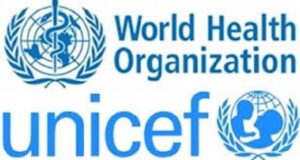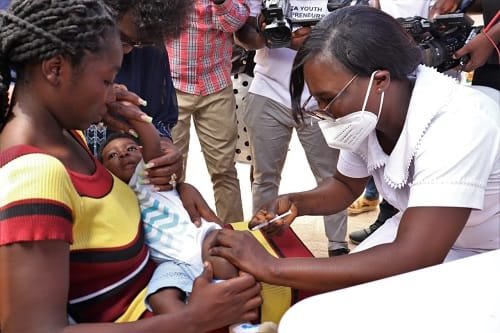
By Gom Mirian
In Nigeria, communicating children’s rights has remained a challenge considering the broad range of abuses against children as a result of ignorance of what constitutes the rights of children.
These, among other challenges faced by children, necessitated the Child Rights Bureau (CRIB) in the federal ministry of information and culture in collaboration with the United Nations Children’s Fund(UNICEF) to draw together journalists and academia across various zones of Nigeria to advocate the needs of the child rights Act.
Speaking at a two-day trainers programme, on the Child Rights curriculum in Enugu, UNICEF Chief of Field Office, Enugu, Juliet Chiluwe, noted that Child’s Rights Reporting Curriculum (CRRC) for tertiary institutions became imperative because communicating children’s rights was challenging.
According to her, a broad range of abuse against children emanates from ignorance of what constitutes a child’s right.
“This great opportunity helps to broaden the scope of knowledge and exposure of the communication students and practitioners of Mass Communication by infusion of the Child Rights concerns, which are also topical concerns for human development.”
Also, on his part, Dr. Jide Johnson, a veteran journalist, said children constitute half of the population in most developing countries and are more vulnerable to poverty and abuse.
In a chat with this correspondent, Johnson said Nigeria had its Child Rights Act (2003), and children’s rights must be defined in society so that they are protected, and their voices are heard on issues that affect them.
“We must provide an environment for them to survive, develop, and achieve. We are here to advocate for these rights to be recognised and for the duty-bearers like caregivers to understand the responsibilities they have to ensure that rights are complied with by all stakeholders in our society.”
According to him, knowledge of the curriculum and its factual reporting will expose children to their rights to survival, development, protection and participation.
“It is not just to recognise the child’s rights but to also ensure that the duty bearers and caregivers are to understand the responsibility they have in ensuring that these rights are complied with by all the major stakeholders in our society and that’s why we are here.
“Journalists are still agents, teachers in various institutions, in sociology, in mass communication and the law profession to understand that as the agent of social change, we have a role to play in letting people know what these rights are so that they can be compliant and adhere to these rights by all critical stakeholders.
“Already teaching this as a course at the Polytechnic level, we have succeeded in mainstreaming it as a general study course for all students that go to the technical system in Nigeria from the 2023-2024 academic session.
“We will take it as general courses and for those in mass communication, it has become a core course for them as a part of the various courses they are going to do in mass communication.
“you know, presently we are onboarding courses at the mass communication level at the Polytechnic.
“We no longer have mass communication at 80s levels. We have strategic communication, we have journalism and then we have film and multimedia production.
“I can tell you for a fact because I’m involved in this, that child right has been mainstreamed as a course at the HD level for all of these three programs, strategic communication, journalism and film multimedia production”.
Meanwhile, a professor of law at the Nnamdi Azikiwe University, Mrs Nkechi Okpalaobi, says she specialises in child rights while studying for her doctorate, and thanked UNICEF for promoting the child rights curriculum.
“The media and the academia, must mainstream children’s rights in schools’ curriculum, engage in advocacy programmes that would further promote the good of the child.”
She said while society must prioritise child’s rights, parents must avoid over-pampering their children to avoid making them irresponsible in the future.
She further called for political will to sustain the child rights act in Nigeria.
One of UNIZIK’s lecturers at the training, Nneka Umejiaku, a doctor of philosophy, said that every child had inalienable rights.
She said the new curriculum was a good development because it would create awareness.
“The importance of child rights can never be over-emphasised because they are the future of any country.
“The government must protect the children because they are future leaders of society.”
“But there is a caveat notice something that constitution the laws are there.
“If you look at the Constitution the right of the child is there. For example, federal rights provide for civil and are the right that provides for liberty.
“Now the problem I see is the 2nd generational right? They provide for the social and economic rights of the child. That is where you will see the rights of participation.
“I see the right to survival, development and protection. However, these rights are not justifiable.
“Why? The Nigerian gave us human rights and it’s in chapter two. He took it away from the child so it exposed the child.
“To so much violence, we are the second section is not suitable for the child. The child cannot go to school, the child cannot access good health facilities, the child cannot enjoy all the welfare rights, cannot access good food, and cannot access good water”.


